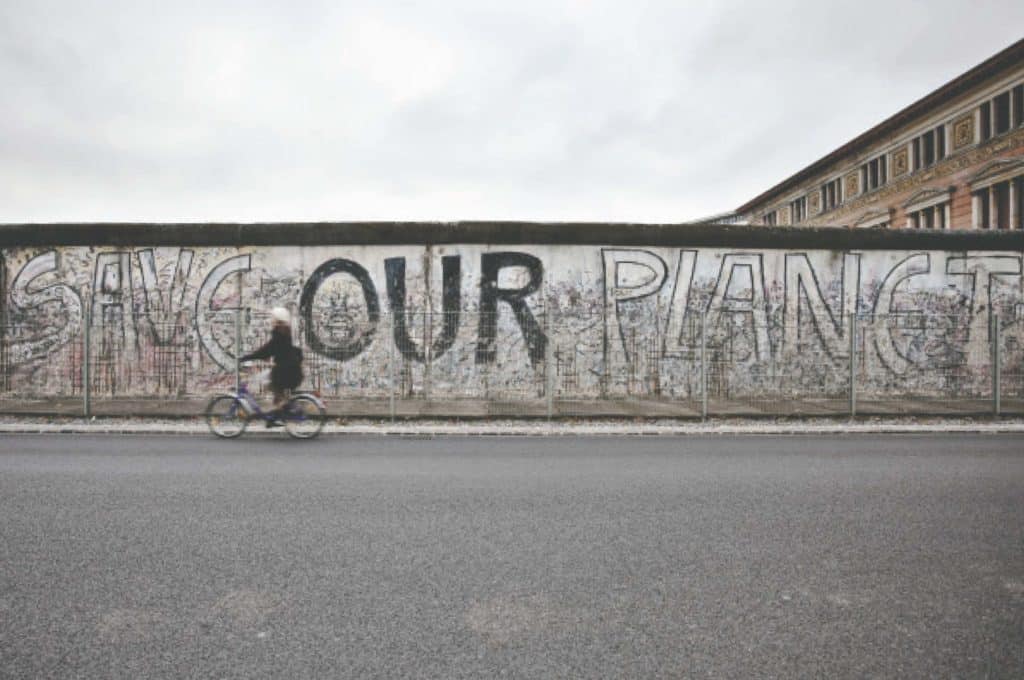
“Mr. Gorbachev, tear down this wall.” So said President Ronald Reagan in a 1987 speech at West Berlin’s Brandenburg Gate. And on Nov. 8, 1989, after years of Soviet decline, that is indeed what happened. The signs were there, but in one fell swoop, the Berlin Wall came down and the Cold War ended.
Reagan’s speech conjured up John F. Kennedy’s 1962 ich bin Berliner stemwinder. By the late 1980s, communism was a spent force. Plunging oil prices had dilapidated the Soviet Union’s main revenue base. The revolution of personal computers was further leaving Moscow in the dust. During the 1973 Yom Kippur War, an angry Soviet diplomat told Henry Kissinger “We only put our troops in places they can win.” And that wasn’t the case in 1979. Fearful of an anti-Soviet uprising in Afghanistan, Moscow invaded that mountainous country in December of that year.
Once again, Afghanistan would become the graveyard of empires. Global opposition was swift, and the Carter Administration quickly began funding anti-Soviet rebels. The next year, Poland exploded and communist authorities there were told by Moscow that no help would be forthcoming. Winston Churchill was right when he said that the Russian bear had digested too much when swallowing up Eastern Europe. In 1953, East Germany revolted. Three years later, Hungary did the same. Finally, in 1968, the Prague Spring was crushed by Soviet tanks. Leonid Brezhnev declared his famous doctrine stating that once a country is in the socialist camp, there it must stay.
For a while, it seemed doable. Rising oil prices, thanks to the Arab embargo following that same Yom Kippur War, gave the Russian economy a boost. America, meanwhile, was in a funk over Watergate and Vietnam. In 1983, the American liberation of tiny Grenada was a symbolic victory: A nation could indeed be pulled out of the socialist bloc. The Reagan Doctrine of supporting anti-communist guerrilla forces throughout the world proved another headache for Moscow. It was not just the failure of communism, but the rise of nationalism that drove the wheel. Little Yugoslavia, a phony state constructed in the wake of World War I, began to tear itself apart. The rebellions in eastern Europe hoped to revive a Catholic traditionalism in those nations, while the rise of Islam delivered a stark rebuke to Western secularism.
The early heroes of the Cold War were certainly the patriots in Hungary, men who were willing to die in the streets of Budapest rather than live under Soviet rule. The post-Cold War era was a time of brief euphoria. The “end of history” was announced. Liberal democracy had prevailed and the nations of the world would feast in its bounty. But as an historian once maintained, things are and are becoming. History never stands still. Thirty years later, the world has been flipped upside down again. “We are not the Romans,” the conservative commentator Pat Buchanan declared the day after the wall came down. Only we were. The coming decades would see wars for democracy and nation-building in numerous countries: Kuwait, Somalia, Yugoslavia, Afghanistan, Iraq, Libya and Syria. The North Atlantic Treaty Organization (NATO) expanded into eastern Europe. Afghanistan is where the Brezhnev Doctrine met its fate. Since 2001, it has also been the scene of the longest war in American history. Meanwhile, Russia has staged a modest comeback under Vladimir Putin. While the U.S. struggled in Afghanistan and Iraq, Russia staged a series of short, successful wars in Chechnya, Georgia, Ukraine and Syria to either stop secession movements, prevent NATO expansion and to maintain a warm weather port in the Mediterranean. America’s wars were anti-terrorist operations. They also hoped to expand democracy and human rights in the Middle East.
Both the 2008 stock market crash and the 2015 migrant crisis further rocked the liberal order. Hungary’s Viktor Orban proclaimed an era of illiberal democracy. Strongmen have taken the reins in Turkey, the Philippines, Egypt and Brazil. Most significant has been China’s rapid climb to the commanding heights of the global economy. By 2050, Beijing aims to become the world’s undisputed economic and military power, crowding out America on the global stage. More stunning, the latter nation elected a president who forthrightly embraces America First, an isolationist foreign policy long thought buried at Pearl Harbor.
Even the liberal democracies of Western Europe find themselves up to their necks in a challenge from far-right populist parties, including those in France, Italy and Germany.
The fall of the Berlin Wall and the rise of illiberalism proves that history still has a few tricks up its sleeve. The age of ideology—democracy, communism, fascism, socialism, capitalism—is gone, if indeed it ever counted for much. Tribalism and with it, the need for the tribe, carries on as it has for thousands of years.


















